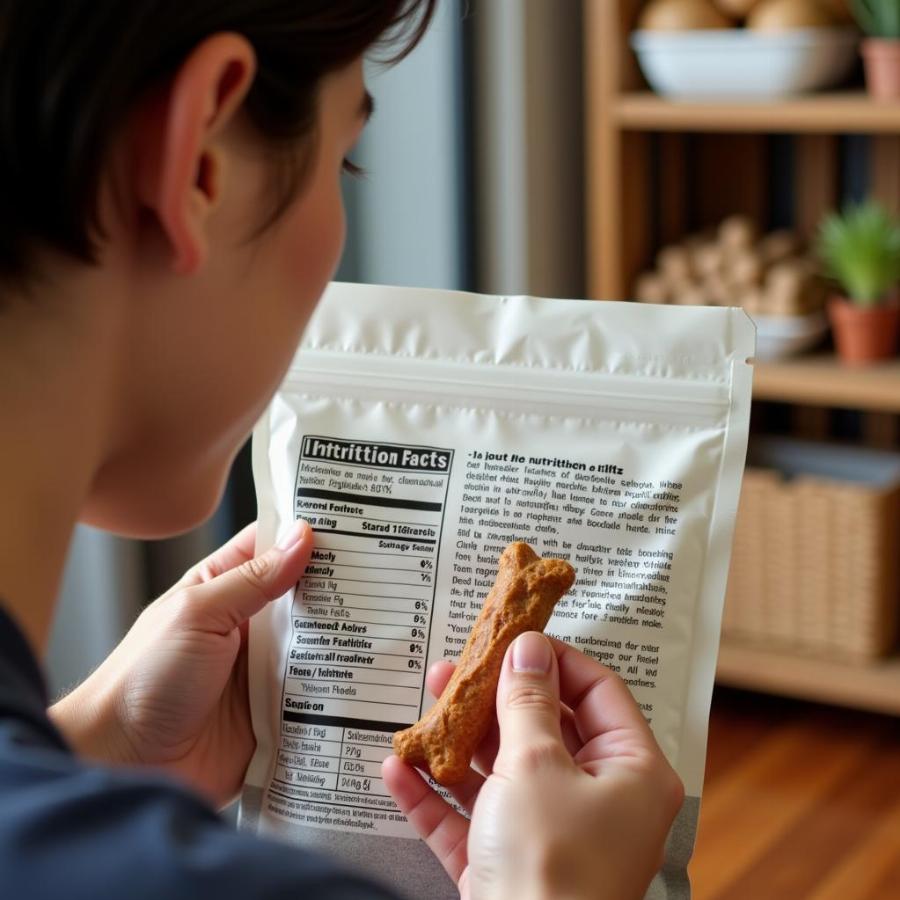Tiny hot dog buns, while adorable, aren’t meant for our canine companions. This article focuses on safe and healthy treat options for your furry friend, addressing the potential dangers of feeding them human foods like tiny hot dog buns and offering nutritious alternatives. We’ll explore the importance of a balanced diet for dogs and how to choose the right treats to keep your pet happy and healthy.
Why Tiny Hot Dog Buns Aren’t for Dogs
While the image of a dog enjoying a tiny hot dog bun might seem cute, the reality is that these miniature bread products, along with regular hot dogs and buns, can be detrimental to a dog’s health. The high sodium content in hot dogs and the refined carbohydrates in buns can lead to digestive issues, weight gain, and even pancreatitis in some dogs. Additionally, some buns contain ingredients like raisins or onions, which are toxic to dogs.
Even seemingly harmless ingredients like yeast and white flour in tiny hot dog buns can cause gas and bloating in our furry friends. It’s always best to err on the side of caution and stick to treats specifically formulated for dogs.
Healthy Treat Alternatives for Your Dog
Fortunately, there are a plethora of healthy and delicious treats available that are specifically designed for dogs. Look for treats made with natural ingredients, low in sodium, and free of artificial colors and flavors.
- Single-ingredient treats: These are a great option for dogs with allergies or sensitivities. Examples include freeze-dried liver, sweet potato chews, and fish skins.
- Dental chews: These can help keep your dog’s teeth clean and breath fresh.
- Training treats: Small, soft treats are perfect for rewarding good behavior during training sessions.
Remember to introduce new treats gradually to avoid upsetting your dog’s stomach. Always supervise your dog while they are enjoying their treats.
Choosing the Right Treats for Your Dog’s Size and Breed
Just like with their regular food, the size and breed of your dog should factor into your treat choices. Smaller dogs require smaller treats to prevent choking hazards. Some breeds are prone to certain health conditions, so it’s essential to choose treats that support their specific needs. For example, if your dog has joint issues, you might consider treats containing glucosamine and chondroitin.
Reading Dog Treat Labels: What to Look For
Understanding dog treat labels is crucial for making informed decisions about your dog’s health. Pay attention to the following:
- Ingredients: Look for whole food ingredients and avoid artificial preservatives, colors, and flavors.
- Guaranteed analysis: This provides information on the minimum levels of protein, fat, and fiber.
- Calorie content: Be mindful of the number of calories per treat to avoid overfeeding.
 Reading dog food label
Reading dog food label
- Feeding guidelines: Follow the recommended serving size based on your dog’s weight.
Dr. Emily Carter, a renowned veterinary nutritionist, advises, “Always prioritize your dog’s health by choosing treats that complement their diet and support their overall well-being. Treats should be a supplement, not a substitute for a balanced meal.”
Conclusion
While tiny hot dog buns might be tempting to offer your furry friend, they are not a healthy option. By understanding the potential risks associated with human food and choosing nutritious alternatives, you can ensure your dog enjoys a long, happy, and healthy life. Remember to consult with your veterinarian if you have any concerns about your dog’s diet or treat choices.
FAQ
- Can dogs eat any type of bread? No, some breads contain toxic ingredients for dogs, such as raisins or onions. Even plain bread can cause digestive issues.
- What are some signs of an allergic reaction to a dog treat? Signs can include itching, skin rashes, vomiting, and diarrhea.
- How many treats should I give my dog per day? Treats should not make up more than 10% of your dog’s daily caloric intake.
- Are homemade dog treats a good option? Yes, homemade treats can be a healthy option if you use dog-friendly ingredients and follow safe food handling practices.
- What should I do if my dog eats something they shouldn’t? Contact your veterinarian immediately.
Further Reading
For more information on dog nutrition and healthy treat options, explore our other articles on miniature hot dog buns and famous uncle al's hot dogs. You may also find our article on kirkland hot dog buns helpful. Additionally, you can learn more about mini hot dog bun and mini hot dog buns on our website.
Beaut Dogs is your one-stop shop for all things dog-related, offering expert advice and resources to help you provide the best care for your canine companion. From breed information to health tips, we’ve got you covered. When in doubt, remember you can reach out to us at [email protected] (Email) for personalized guidance from our team of experts. Beaut Dogs is committed to helping you navigate the wonderful world of dog ownership.